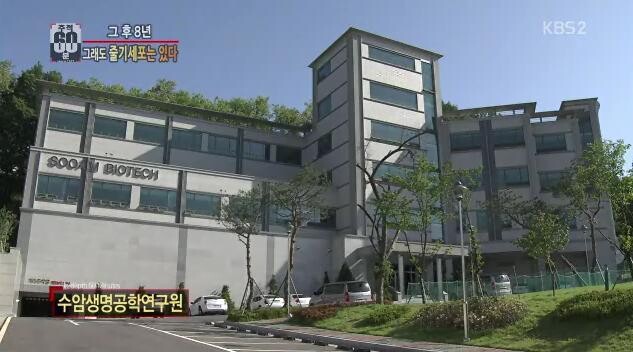hankyoreh
Links to other country sites 다른 나라 사이트 링크
“Delicious” cloned beef? S. Korean and Chinese planning mass cloning of cows

A Chinese bio-engineering company announced plans to collaborate with a South Korean institute headed by researcher Hwang Woo-suk on construct the world’s largest animal cloning complex for the mass-production of cloned beef cattle.
Experts worried about the untested safety of eating cloned animals and predicted that high production costs would make the venture economically unfeasible.
The Chinese bio-engineering company Yingke Boya Gene Technology Ltd. plans to construct the clone factory in a development district in the city of Tianjin together with South Korea’s Sooam Biotech Research Foundation at a cost of 200 million yuan (US$31.3 million), China’s state-run Xinhua news agency reported on Nov. 23.
Sooam is an institute led by former Seoul National University veterinary medicine professor Hwang Woo-suk, the figure at a center of a 2005 scandal over fabricated stem cell paper data.
Also planned for the complex are a cloning laboratory, cloned animal center, and gene bank. It is expected to open in 2016.
Boyalife Group chairman Xu Xiaochun discussed the project’s aims at a press conference to announce the factory‘s construction.
“The biggest goal of this project is to supply large quantities of high-quality beef from cloned cattle to Chinese consumers,” Xu said.
Xu also said the cloning of beef cattle would be “one of the chief activities of the Tianjin animal cloning complex.”
“As a first stage, we plan to produce 100,000 head of cloned cattle a year, after which we will begin stage two and the production of one million head a year,” he explained.
“Cloned beef is the most delicious beef I have ever tasted,” he added.
Other activities besides beef cattle cloning would include “cloning of police dogs for explosive and drug detection and rescue operations,” Xu continued.
“We have taken the first step on an unprecedented road. We plan to be the business leader in animal cloning,” he said.
But SNU veterinary medicine professor Woo Hee-jong noted that cloned animals suffer from various side effects, including faster aging and greater disease susceptibility than ordinary animals.
“Since we haven’t tested the safety of having people eat them, the European Parliament banned the sale of meat from cloned livestock,” he noted.
Woo also questioned the economic feasibility of the plan.
“Animal cloning is tremendously expensive, with one pet costing around 100 million won (US$87,300),” he said. “Who’s going to buy cattle that are that expensive?”
Ryu Young-joon, a professor at the Kangwon National University medical school, explained that cloning is “extremely expensive because almost everything has to be done by hand, from the extraction of eggs by trained staff to the development of fertilized eggs and implantation in the womb.”
“Beyond any question of the side effects from eating it, it just doesn’t make economic sense,” Ryu said.
By Seong Yeon-cheol, Beijing correspondent and Kim Yang-joong, medical correspondent
Please direct questions or comments to [english@hani.co.kr]

Editorial・opinion
![[Column] Season 2 of special prosecutor probe may be coming to Korea soon [Column] Season 2 of special prosecutor probe may be coming to Korea soon](https://flexible.img.hani.co.kr/flexible/normal/500/300/imgdb/original/2024/0426/3317141030699447.jpg) [Column] Season 2 of special prosecutor probe may be coming to Korea soon
[Column] Season 2 of special prosecutor probe may be coming to Korea soon![[Column] Park Geun-hye déjà vu in Yoon Suk-yeol [Column] Park Geun-hye déjà vu in Yoon Suk-yeol](https://flexible.img.hani.co.kr/flexible/normal/500/300/imgdb/original/2024/0424/651713945113788.jpg) [Column] Park Geun-hye déjà vu in Yoon Suk-yeol
[Column] Park Geun-hye déjà vu in Yoon Suk-yeol- [Editorial] New weight of N. Korea’s nuclear threats makes dialogue all the more urgent
- [Guest essay] The real reason Korea’s new right wants to dub Rhee a founding father
- [Column] ‘Choson’: Is it time we start referring to N. Korea in its own terms?
- [Editorial] Japan’s rewriting of history with Korea has gone too far
- [Column] The president’s questionable capacity for dialogue
- [Column] Are chaebol firms just pizza pies for families to divvy up as they please?
- [Column] Has Korea, too, crossed the Rubicon on China?
- [Correspondent’s column] In Japan’s alliance with US, echoes of its past alliances with UK
Most viewed articles
- 1‘We must say no’: Seoul defense chief on Korean, USFK involvement in hypothetical Taiwan crisis
- 2[Column] Season 2 of special prosecutor probe may be coming to Korea soon
- 3N. Korean delegation’s trip to Iran shows how Pyongyang is leveraging ties with Moscow
- 4Amnesty notes ‘erosion’ of freedom of expression in Korea in annual human rights report
- 5[Reportage] On US campuses, student risk arrest as they call for divestment from Israel
- 6Korea sees more deaths than births for 52nd consecutive month in February
- 7[Editorial] New weight of N. Korea’s nuclear threats makes dialogue all the more urgent
- 8‘Weddingflation’ breaks the bank for Korean couples-to-be
- 9[Column] Has Korea, too, crossed the Rubicon on China?
- 10[Column] Park Geun-hye déjà vu in Yoon Suk-yeol